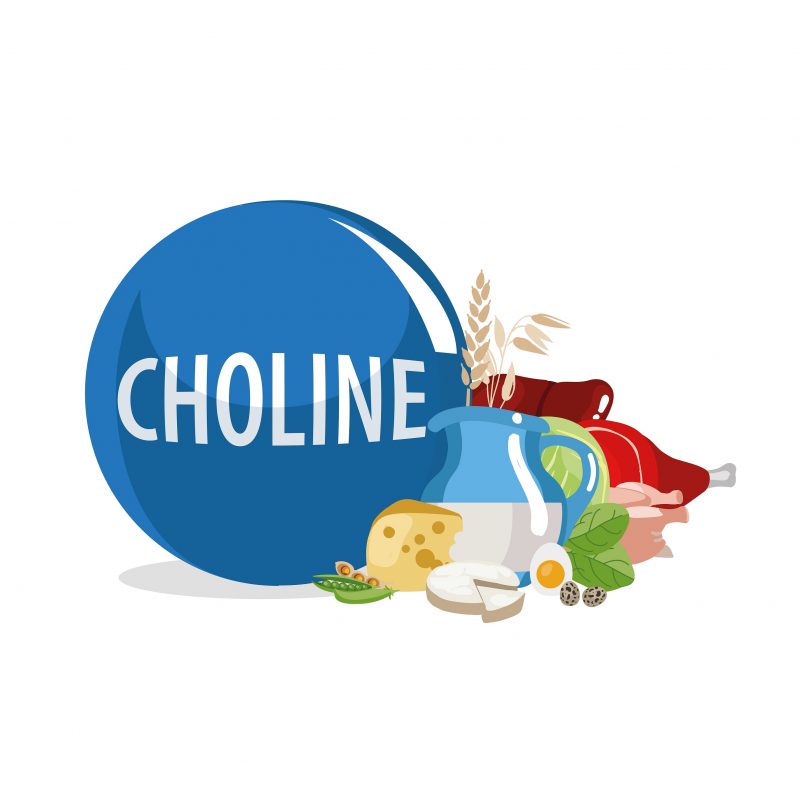Of all the things present in your diet that you might think you’re not getting enough of, choline isn’t likely to be one of them. Healthy fats, protein, iron and fiber may all spring to mind, but as it turns out, studies show that it’s choline that the vast majority of Americans are deficient in.
According to the National Institutes of Health (NIH) Office of Dietary Supplements, the average adult male needs around 550 milligrams of choline each day, while females should look to get 425 milligrams. While our bodies do make choline, the vast majority of what we use comes from the food we eat. Insufficient amounts of choline in our diets can cause fat deposits in the liver as well as muscle or liver damage.
As researchers have uncovered the deficiencies, they’ve urged public health officials to focus on educating the public about the problem. A study published in the journal Nutrition Reviews put it this way: “increasing awareness of the pervasiveness of suboptimal choline intakes must become the focus of public health efforts in order to promote optimal health.”
Choline is an important part of the diet as it impacts the nervous system, muscle movement and liver and brain function. It’s neither a vitamin nor a mineral, but rather a water-soluble compound that is often lumped in with B vitamins due to their similarities.
What Foods Contain Choline?
Vegans and vegetarians are the most likely candidates for choline deficiencies as it’s typically found in animal food products, ranging from egg yolk to fresh seafood. While you can take supplements to get more choline into your diet, some of the foods rich in choline that can play a role in a healthy diet include:
- Beef or chicken liver
- Eggs
- Cod and salmon
- Cauliflower
- Broccoli
- Dairy
- Potatoes
- Soybean oil

Two large eggs can provide half the daily amount of choline necessary. It is possible to have too much choline in your diet, though ingesting the levels necessary for that to be the case is unlikely.
What is the Role of Choline in Health?
Officially recognized as an essential nutrient by the NIH in 1998, choline has come to be recognized by experts as playing a variety of important functions in the body. Sufficient choline intake is associated with reduced risk of heart disease, for example.

But as aging is concerned, two areas of interest are the nutrient’s effect on inflammation and the brain. The Nutrition Reviews study noted that those with sufficient choline levels show far lower levels of inflammation when you look at their biomarkers.
When it comes to the brain, choline produces neurotransmitters vital to the regulation of memory and mood. It synthesizes DNA for brain development and causes improved blood flow to the brain, improving the ability to process information and maintain memory function. Choline is also the primary component of the membranes that surround cells in your body.
Over the coming years, researchers are interested with the physiological effects of choline on the body. Also, some studies have suggested that even though choline is good for the brain, it does little to help address issues related to cognitive performance in older adults. While we know that choline helps support the longevity of communication systems used by cells within the brain, an area that is likely to be the subject of more testing is whether or not it can prevent changes in brain chemistry that lead to cognitive decline and dementia.
